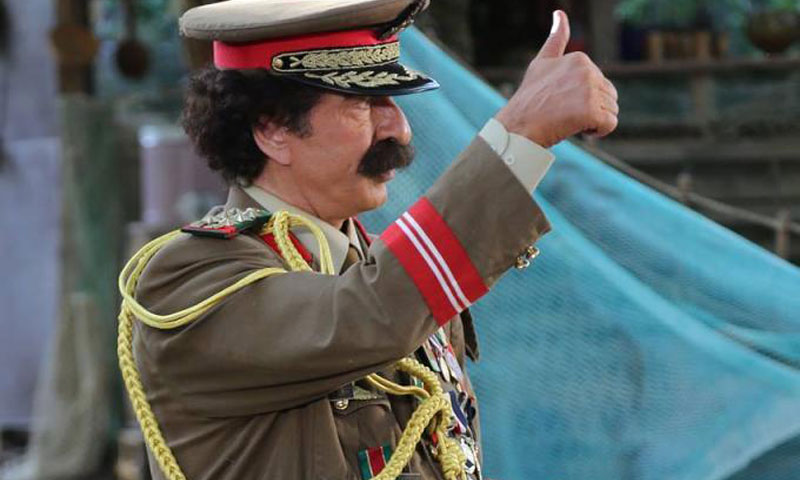“I’m sure that he is the cause of the chemical crisis in the country,” says the character of ‘Jihad’ acted by Rashid Assaf, a Syrian actor, on the TV. series called ‘Azmeh Aayilia’ (A Family Crisis), after a child emerges from the lavatory and the house starts to smell bad.
Kidding, Assaf makes a comedy of 1420 Syrian people’s torture; those who happened to suffer the worst forms of death, suffocating in 207 chemical attacks carried out by the Syrian regime since March 2011, according to the Syrian Network for Human Rights.
This brief sentence, “I’m sure that he is the cause of the chemical crisis in the country,” intensifies a frightening tendency to enjoy other human’s pains. Using the ‘chemical massacre’ in a ‘comical context’ does not only make it more prominent but also turns its hilarious usage into an implied invitation to see, observe, what happened; this usage is an attempt to actualize it, claim it, and normalize it. The massacre is excessively ‘normal’ to the extent that we are making fun of it.
Suddenly, Hannah Arendt’s philosophy of dictatorship starts to take shape in that usage; she mentions that those dictatorial regimes turn the violence they practice into a sphere, where citizens can live and go on being normal after getting used to it. Citizens are, then, triggered to cling to violence which guarantees them ‘freedom of movement’ and ‘self-expression,’ the self they have discovered in the shadow of such regimes being slaves for their machines.
The above-mentioned explanation might help us understand why Rasheed Assaf, the actor, and Hisham Sharbatji, the comedy’s director and the field’s veteran in Syria, could not find a substitute for the chemical massacres to use as a joke to make the audience laugh. Both of them are attached to that space made of violence for they know all its details; they know how to navigate its rugged roads. They use that space as if they constitute a part of it, of its actions; they embrace it and tackle it the way they tackle their breakfast.
Remembering Assaf’s sentence in A family Crisis, we almost have a heart attack upon hearing that he will participate in a new comedy called ‘Al Wak-Wak, ‘ an island mistakenly reached by a group of Syrians fleeing the Syrian war to Europe.
In the Syrian imagination, the island is linked to an unknown mythical place where the Syrian regime keeps its detainees. Al Wak-Wak might also be a synonym of Cyprus, another place that holds a dear place in the Syrian people minds’ as a faraway place where detainees are sent in a reference to the impossibility of their return.
To confirm this claim, we go back to a pre-revolutionary Syrian drama. In that TV. series, ‘Dayaa Da’ayaa’ (A Lost Town), the island of Cyprus is frequently mentioned by a police officer famous for his exclamatory expression ‘Ya Huma Lali’. It is important to mention that A Lost Town is categorized as one of the best Syrian productions, loved by both the opposition and the regime’s loyalists.
‘Ya Huma Lali’ threatens anyone who disobeys the government and promises them that their ‘barking’ will reach the island of Cyprus, in reference to their screams under the torture he will subject them to.
I do not claim that Syrian dramatists deliberately broadcast these messages with all their symbolic dimensions and the extensive presence of the Syrian security apparatuses and their authority on our laughter. Rather, I am trying to say that the words and the elements they choose to represent are components of the regime’s repressive mentality; unconscious components that make any practice done by the regime, even a ‘Joke,’ a criminal act.
It is from utilizing these unconscious components that the Syrian drama might be playing a role in “normalizing” the Syrian regime’s practices and “legitimizing” what it is doing, not only at the local level but also internationally, with the translation of many series into foreign languages.

